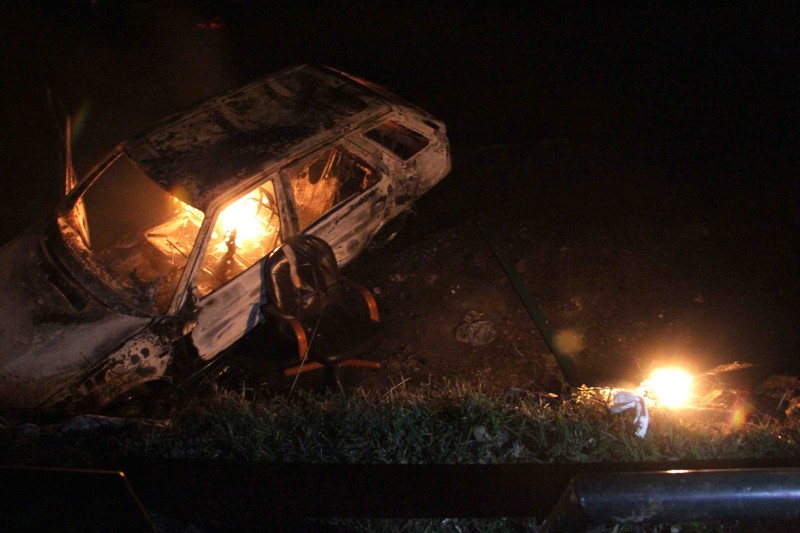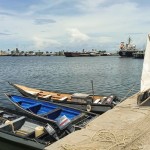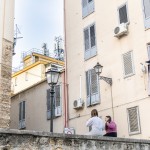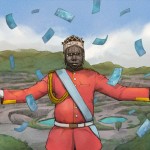Where and why did the protests begin?
The protests began last week in the northern Bosnian city of Tuzla, after the privatization of factories that had employed most of the population. Instead of making the companies profitable, the owners sold them, stopped paying workers, and filed for bankruptcy—leaving people without pay, benefits, and most importantly, any real recourse.
Citizens in Tuzla began protesting by setting government buildings on fire, and soon thousands gathered in Sarajevo, Zenica, Mostar, and Bihac in solidarity—at times also burning buildings and rioting in the streets to express their anger.
These protests have now swelled into a larger movement protesting Bosnia’s high unemployment rate, corrupt politics, and stifled economic development: issues that have plagued the country for twenty years now.
Today, the protestors say, nobody has jobs. The middle class is being squeezed out, the working class is struggling to survive, and the country-wide privatization that has occurred following the fall of Communism has ultimately benefited only a select elite: tycoons who alone reap the benefits of a corrupted capitalism.
This is a country where members of Parliament earn about 10 times as much as their fellow citizens, who on average brings in US $570 a month. That income is, of course, only enjoyed by those who can find jobs. The average unemployment rate in Bosnia is almost 40 percent—the highest in the Balkans. Youth unemployment meanwhile is reaching 70 percent.
So how corrupt is Bosnia and Herzegovina?
According to Transparency International (TI), quite.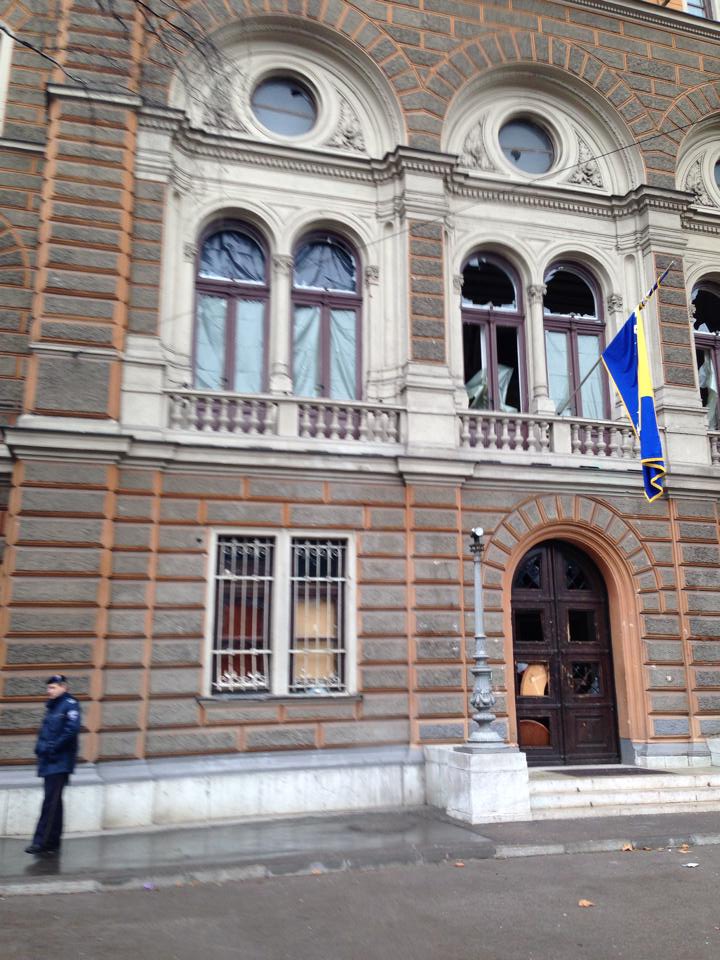 Presidency building in Sarajevo
Presidency building in Sarajevo
Of 177 countries analyzed in Transparency International’s 2013 Corruptions Perceptions Index, Bosnia came in 72nd place, tying with Brazil, Serbia, and South Africa. According to TI, Bosnia “rests on very shaky political, social and economic foundations” which are only exacerbated by a “complex constitutional setup, deep ethnic divisions and woeful state of the economy resulting from the armed conflict in the early 1990s.”
The lack of accountability and transparency combined with Bosnia’s labyrinthine government administration lubricates back-door deals, under-the-table agreements, and stalled-if-at-all present prosecution of corruption. Businesses are sold well under their value to those who have the right connections, and war profiteering has bestowed massive wealth on a select few.
Organized crime figures have ties to government officials and political figures, and citizens who don’t have the “right” connections or political affiliations often struggle to find jobs.
Anti-corruption laws and organizations that have been put in place due to international pressure have under-performed at best. In 2010, a grand total of two cases of corruption resulted in jail sentences. Seventy percent of corruption investigations were dismissed.
This is the largest upheaval since the war in the early 1990s. What happened then?
The last time Bosnia and Herzegovina made international news was during the gruesome 1992-1995 war, the most devastating conflict in Europe since WWII.
After the fall of Communism in the early 1990s, the Yugoslav Republic began to break apart. Slovenia and Croatia declared independence, and bloodshed began when Bosnia tried to secede. War soon consumed the nation as various nationalist groups attempted to partition ethnically diverse territories, using torture, murder, rape, and forced evacuation as part of an “ethnic cleansing” campaign.
More than 100,000 people were killed, 20,000 to 50,000 women were raped, and more than 2.2 million people were displaced. “Safe havens” run by the UN not only failed to protect citizens, but became easy targets for mass execution. In July 1995, under the command of General Ratko Mladić, the Bosnian Serb army perpetrated the largest civilian massacre in Europe since World War II, marching 8,000 Muslim men to a killing field before slaughtering them.
The 1995 Dayton Accords ended the war in Bosnia and Herzegovina, but also created a very decentralized state divided along ethno-political lines. There are now two political entities: the Muslim-Croat Federation and Republika Srpska. Each has its own Parliament, police, and president.
What are politics in Bosnia and Herzegovina like now?
In a word, convoluted. Bosnia and Herzegovina is governed by a rotating, three-person presidency held between Serbian, Croatian, and Bosniak leaders. It has an internationally appointed High Representative, 10 cantonal administrations, one special district, and numerous municipalities—creating a bloated bureaucracy that not only hinders efficiency but hampers transparency and accountability.
The system is meant to offer a voice to Bosnia and Herzegovina’s three major ethno-religious groups: Muslim Bosniaks, Eastern Orthodox Serbs, and Catholic Croats, while providing oversight from the international community.
However, it has largely only legitimized ethnic divides, reinforcing the differences between the ethnic groups on the political level in a bureaucratic mess that the New York Times called “the most cumbersome political system in Europe.”
Ok, so the protests—are they nationalistic outbursts?
No, and arguing such ignores what is happening on the ground.
Milorad Dodik, the president of Republika Srpska, the Serbian political entity in Bosnia and Herzegovina, was quoted in Balkan Insight saying that the aim of the protests is “to destabilize Republika Srpska and further involve the international community” in the country. Other political leaders have released similar statements, saying that the protests are ethnically-charged or based. The protests have been described as anti-Serb, anti-Croat, and anti-Bosniak.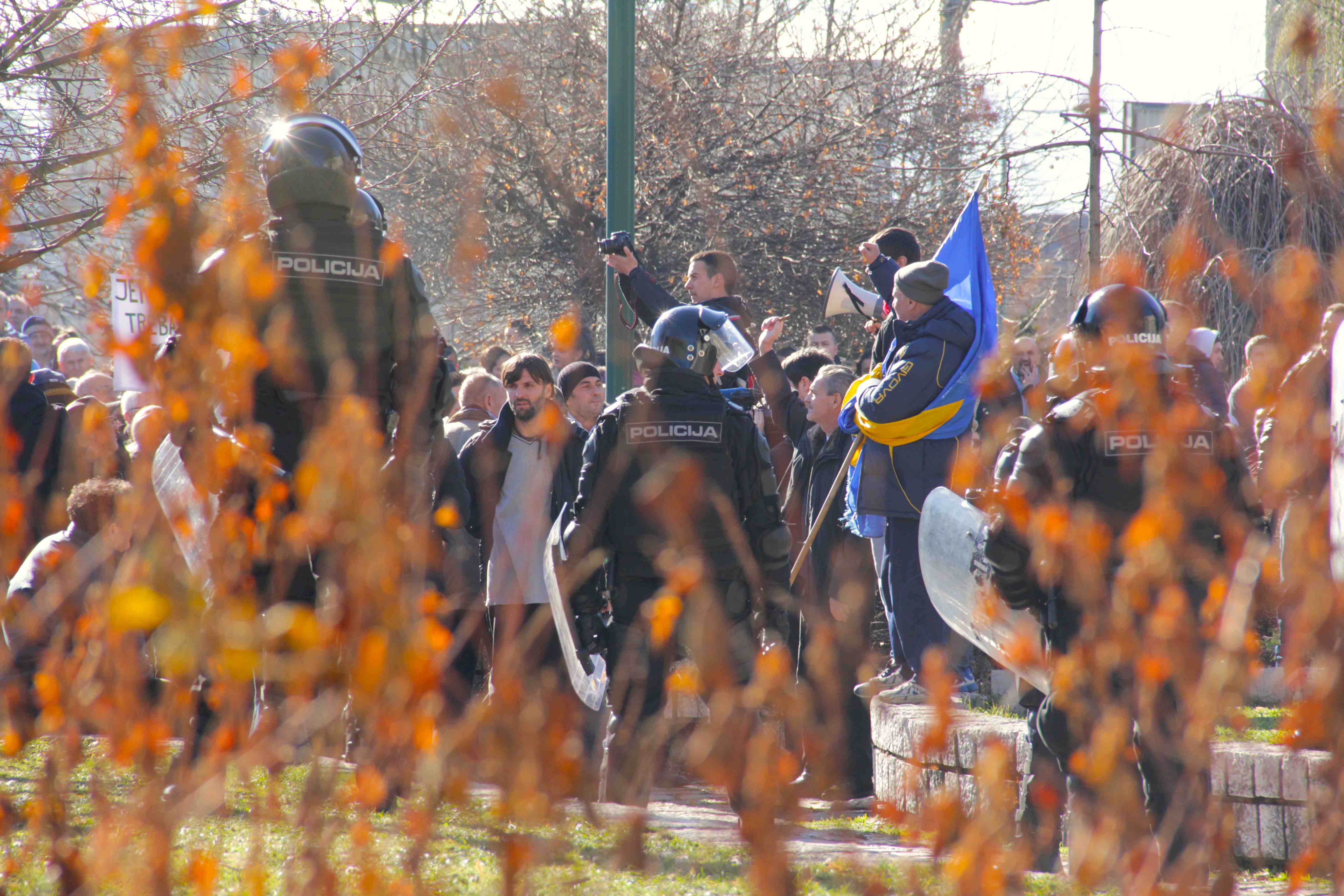 Protestors by the presidency. Photo credit: Katherine Klaric
Protestors by the presidency. Photo credit: Katherine Klaric
In a Guardian article, Slovenian philosopher Slavoj Žižek dismisses these statements, saying, “In short, we are dealing with a rebellion against nationalist elites: the people of Bosnia have finally understood who their true enemy is: not other ethnic groups, but their own leaders who pretend to protect them from others.”
Bosnians are demanding a new government where representation isn’t just defined by having the “correct” proportion of Serbs, Croats, or Bosniaks in government on paper. They are calling for a system they feel actually represents them, one that is purged of the cronyism, corruption, and partisanship they say has become synonymous with the political elite.
People are demanding new leadership, and meetings have been called where all except current politicians are asked to join the conversation around creating a new government. They have their own forums; they’ve had their chance, the protestors say.
What do protestors want? Who is behind this movement?
In Sarajevo, citizens have demanded the resignation of the entire government headed by Federation Prime Minister Nermin Nikšić, and called for the formation of a non-partisan government.
Leaflets are being disseminated which demand reduced salaries for political functionaries, public expenditure transparency, invalidation of “illegal privatization contracts,” and release of all detained demonstrators.
In Tuzla, people have demanded that privatization agreements be annulled. They too are calling for a new government purged of the present political incumbents, equalized pay for public and private sector employees, and an end to “irrational and unjustified forms of compensation” for public employees.
The protests have been largely coordinated via social networks, and demands are not coming from one party, figure, or group.
Emina Busuladzic, a protester in Tuzla, was quoted by the Global Post saying, “ We do not belong to any political party, we are only dissatisfied citizens of Bosnia."
Political Analyst Srecko Latal echoed her statement, saying "The main message is that the citizens are tired of the political class and they make no difference between the political parties."
Has any political change happened yet?
Amongst politicians, there has been In-fighting and finger-pointing. Bakir Izetbegović, the Bosniak member of the Presidency, accused Security Minister Fahrudin Radončić of failing to prevent the violence or protect the state. Radončić in turn said there is an anti-graft "tsunami" coming because other politicians have failed to curtail corruption and crime in the region.
The cantonal prime minister in Zenica, Munib Husejnovic, has resigned over the protests. The cantonal prime minister in Sarajevo, Suad Zeljković, has followed suit, as has Interior Minister Mariya Sulenta from the Herzegovina-Neretva Canton government and Hilmo Selimović, Director of Police Coordination in Bosnia.
In Sarajevo, a citizens' plenum, inspired by Tuzla’s ongoing one, has been scheduled for this week. The goal is to create a forum where protestors’ demands can be transformed into an action plan. The original event, scheduled for Wednesday, was re-scheduled because the chosen venue was too small for the crowds, who gathered in an eager swarm.
So what’s next? Who is leading the political change?
Although many of the initial protests led to the destruction of property, stores, and archives, the movement is not, as some local media outlets claim, led by wild “hooligans” or “drug dealers” burning down state buildings and lighting trash on fire.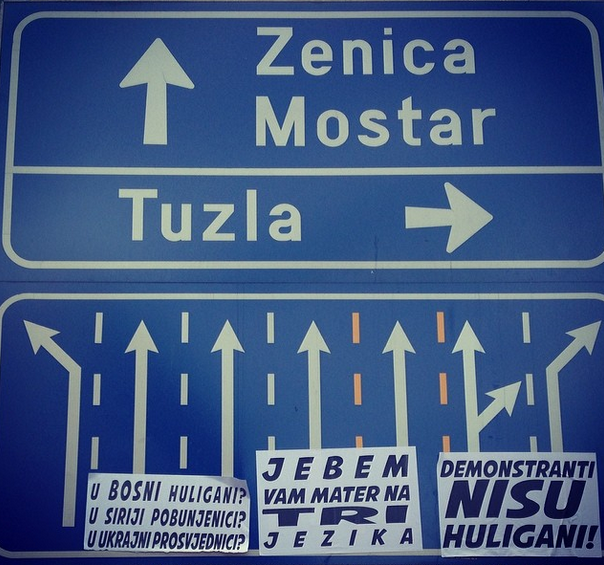 Street sign in Sarajevo
Street sign in Sarajevo
The protests now are largely peaceful and composed of citizens gathered at main roads and traffic intersections. They hold political signs, whistles, and megaphones, standing in solidarity against a system that has failed them for two decades. They are youth organizing meetings on social media, parents explaining that they can’t feed their families because they are unemployed or underemployed, and workers voicing their frustration over not getting paid because their employers say they are temporarily strapped for cash.
Streets are plastered with political signs. Some lament the dismal economic situation in Bosnia and Herzegovina: “Seven years without pension and health care” they say. Others express frustration over the way the protests have been covered: “Demonstrators are not hooligans.” And many show anger. In front of a major road sign in Sarajevo, someone has pasted a paper that says, “Fuck your mother in three languages,” referencing the ethnic divisions within the local language, Bosnian/Croatian/Serbian.
So what will come of this “Bosnian Spring”?
The end result of this movement is difficult to predict, but the fact that there are even protests shows a promising shift in attitude around Bosnian politics and the country's future.
I have listened to many citizens lament the political and economic situation in Bosnia. Then they sigh, take a sip of their coffee or liquor, and say there is nothing they can do about it because the system itself is irreparably corrupt.
Cronyism, lack of jobs, and politicization of ethnic difference will likely continue to blight the country for some time, but concrete solutions and actionable game plans are finally emerging. The tone of discourse is no longer that of resigned defeat. There is suddenly a sense of possibility, room for agency, and most importantly, an opportunity for citizens to purge the government of the political elite that have plundered from rather than represented them.
Slavonic and Eastern European Studies Professor Eric Gordy says that one should not be so quick as to label the protests as a massive workers’ revolution or a “Bosnian Spring.” It’s February, he quips. However, he also highlights the importance of what appears to be a shift away from the former tolerance and patience for a “predatory government.”
Says Gordy: “The future depends on what happens, but a promising sign is that now this may depend on what a larger rather than a tiny group of people may do.”
